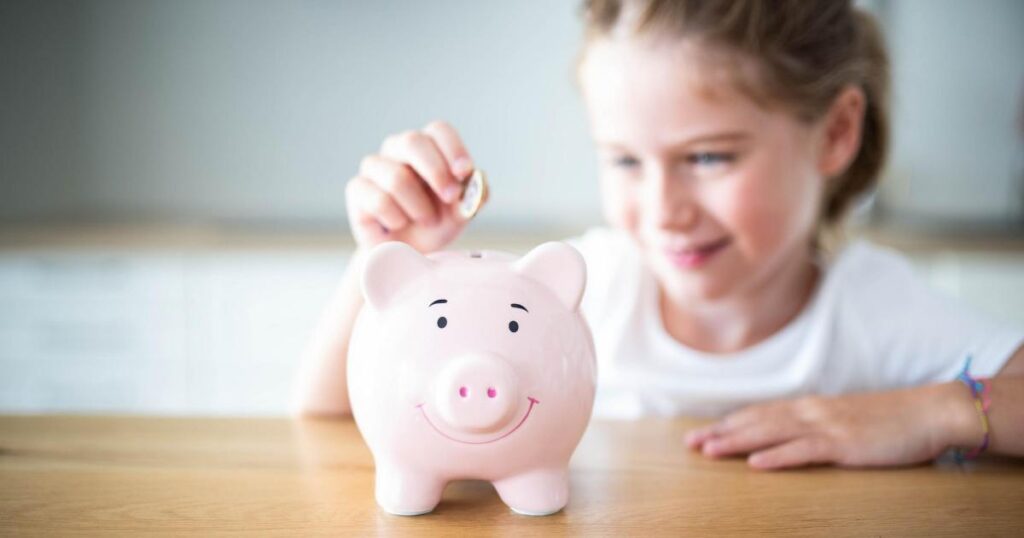Child Benefit is usually paid on a Monday or Tuesday, but there is Early May bank holiday on Monday, May 5 and Spring Bank Holiday on May 26 2025.
If you’re due a Child Benefit payment on May 5, you’ll likely receive it on Friday May 2, and the payment for May 26 is likely to arrive early too, on May 23.
While many will welcome the payments – they will have to last longer as dates will return to normal after the bank holiday.
Child Benefits have increased
Many will have noticed an increase to reflect the new rates. Families with one child will now receive the new amount of £26.05 per week, up from £25.60 each week, from April 2025.
Families will also receive £17.25 per week (up from £16.95) for each additional child they have after that. Unlike some other benefits. There is no limit to how many children families can claim for as the two-child limit does not include Child Benefit.
It’s estimated that around 7 million families claim Child Benefit in the UK, for around 13 million children, although figures change slightly each year, so the exact figures may change for 2025.
Do you claim child benefit? Or not claim as you’re over the threshold? Either way an admin tweak could add £1,000s to your state pension entitlement later
Watch the full @itvMLshow for far more tips on: https://t.co/gW7ejoeuiq pic.twitter.com/fTq4ab127h
— Martin Lewis (@MartinSLewis) November 24, 2023
Parents or guardians get Child Benefit if they’re responsible for bringing up a child who is:
Only one person can get Child Benefit for a child.
There’s no limit to how many children you can claim for, as it is not covered by the two-child cap.
By claiming Child Benefit, you can also get some other helpful things:
- National Insurance credits which count towards your State Pension.
- a National Insurance number for your child without them having to apply for one – they’ll usually get the number shortly before they turn 16 years old
If you choose not to get Child Benefit payments, you should still make a claim to get the other advantages.
Is there a two child cap on Child Benefit?
No, despite some confusion. Martin Lewis has done a really good explainer video on this – here are the main points.
“It has been much confused and mis-explained in the media, during the current political debate, who often convolute all three into one thing called the ‘two-child benefit cap’. It doesn’t really exist.”
He adds: “Child Benefit (is) a universal payment made for EVERY child you have.
“Now, number two is the two-child limit. This is the one that is being discussed in the media. This is the one there’s all the political issues about. It should accurately be called the ‘two-child limit for Universal Credit or Tax Credits’.
“This one applies to the benefits that people who have low incomes, whether they’re working or not working, get. That’s what this is about.
“And in simple terms, it means if you have more than two children, then you won’t get any additional benefit for the costs that they are incurring you (on Universal Credit and Tax Credits).
“There are exemptions to this. If your child was born before 6 April 2017 when it came in, then that doesn’t count. And there are other things out there. For example, if you’ve had a multiple birth, [say] triplets, then there are exemptions in the rules for that. But in general terms: more than two kids, you won’t get extra benefits.”
Recommended reading:
Child Benefit and protecting your State Pension
You’ll get National Insurance Credits automatically if you claim Child Benefit and your child is under 12.
These credits count towards your State Pension, so you do not have gaps in your National Insurance record if either:
- you’re not working
- you do not earn enough to pay National Insurance contributions
Like all benefits, if your circumstances change, you must report changes as soon as possible.
Attention Parents! 📣
Child Benefit rates are going up from today.
The rates have risen by 1.7% to £26.05 a week for the first or only child and then £17.25 for subsequent children.
Claim online or in the HMRC app.⬇️https://t.co/RpvjedNi4J pic.twitter.com/qisjsRGwfL
— HM Revenue & Customs (@HMRCgovuk) April 7, 2025
High Income Child Benefit Charge
This changed last year. You may have to pay the High Income Child Benefit Charge if you or your partner have an individual income that’s over the threshold and either:
- you or your partner get Child Benefit
- someone else gets Child Benefit for a child living with you and they contribute at least an equal amount towards the child’s upkeep
It does not matter if the child living with you is not your own child.
An individual income is over the threshold if it’s:
- over £60,000 for the tax year 2024 to 2025
- over £50,000 for tax years up to and including the tax year 2023 to 2024
To work out if your income is over the threshold, you’ll need to work out your ‘adjusted net income’. Your total taxable income includes interest from savings and dividends.
Use the Child Benefit tax calculator to get an estimate of your adjusted net income.
Who has to pay the High Income Child Benefit Charge?
If your adjusted net income is over the threshold and so is your partner’s, then whoever has the higher income is responsible for paying the tax charge.
‘Partner’ means someone you’re not permanently separated from who you’re married to, in a civil partnership with or living with as if you were.
If you choose to opt out of getting Child Benefit payments, you should still fill in the Child Benefit claim form. You need to state on the form that you do not want to get payments.




